Grieving: how to cope with the death of your dog
Ten tips to ease your suffering at this painful stage
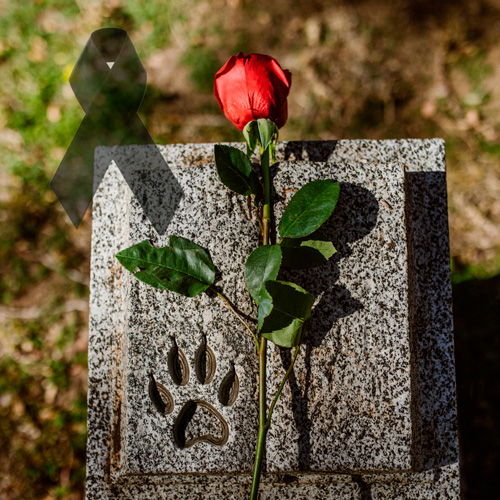
GRIEVING AFTER THE LOSS OF YOUR PET
Approximate reading time: 9 minutes
Dogs are the best companions a person can have, and it takes little time for them to become part of our family. We live with them, sharing a lot of precious moments: walks, games, excursions... But even when we are not doing anything in particular, they are there, always by our side, watching us, accompanying us and giving us their affection and loyalty. It is natural that for many people their dog ends up being more important in their lives than many people, as the bond that is created between pets and owners is very intense. Therefore, when our dog dies, we may feel very sad and depressed, going through a grieving process similar to that which we would go through if we lost a loved one. This is not a reason to feel bad, guilty or ashamed. When our dog is gone, we lose a great friend, so it is inevitable to feel a great emptiness, pain and sadness.
Grieving the loss of a pet is not unlike any other grief. It is an adaptive process necessary to overcome this complicated stage and to heal all those emotions that are mixed up inside us. The stages of grief are denial, anger, bargaining, sadness and finally acceptance, when we understand that we have to move on because we cannot change what has happened.
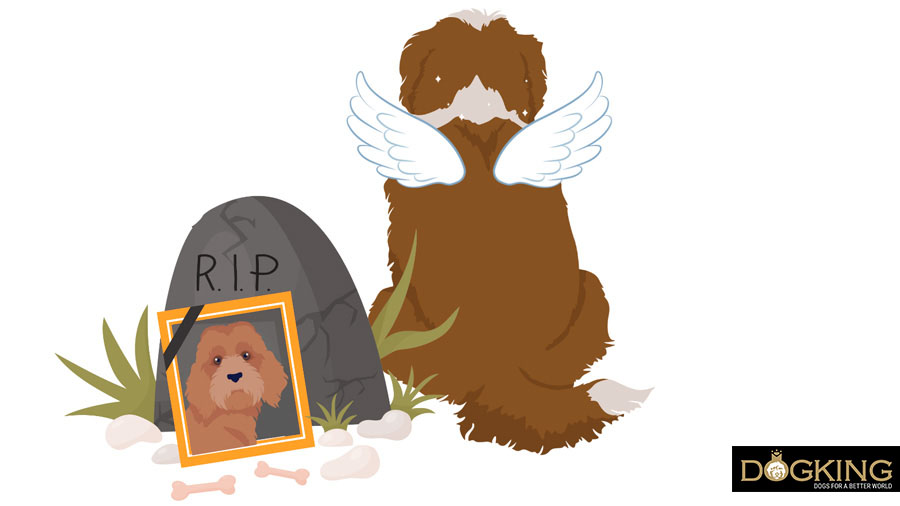
Table of contents
1- Dealing with grief after the death of your dog
How to mourn the death of your dog
When our best friend leaves us, either suddenly, because they are old or after an illness, we feel a lot of things all at once. Sadness that we will never see them again, anger that it seems unfair that it should happen to us, or perhaps even guilt that we didn't do more for our pet. However you feel at this painful time, it is totally normal. There is no way to avoid the grieving process, but there are certain things you can try to find some light in such a traumatic situation.
-
Embrace your emotions
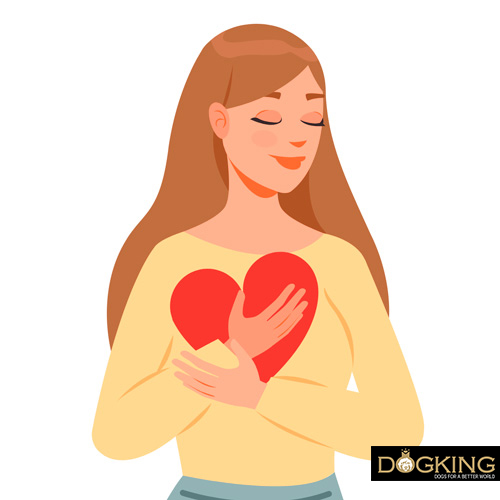
Depending on how sudden your dog's death was, your emotions may vary greatly. Also, everyone is different, has their own baggage and experiences and there is no right or wrong way to feel at this time. Whatever you are experiencing, don't judge yourself. Maybe you have lost other dogs before and, although you are very sad, you have learned to get over this painful time more quickly. Or perhaps you have already grieved during your dog's last months, if they have suffered through a long illness. It is possible that your dog has gone unexpectedly and you are feeling very low and depressed. It's OK: be understanding and kind to yourself. In time you will feel better, and although you will always remember your furry friend, you will be able to live with it and move on.
-
Talk about your feelings with people who understand you
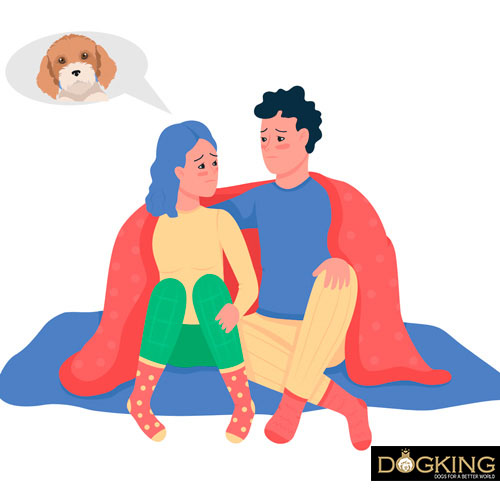
Some people who haven't shared their lives with a dog or who aren't particularly empathetic might not think it's such a big deal that your pet is gone. To some, a dog is just a dog, but to you they are much more than that: your faithful and loyal friend. Don't let these people judge how you feel and try to talk about your emotions with people who do understand you at this sad time. If you don't have anyone around you to do this, you can look for support groups or online forums. Sharing your grief won't make it go away, but feeling understood and validated in your feelings will ease some of the bitterness.
-
Organise a ritual
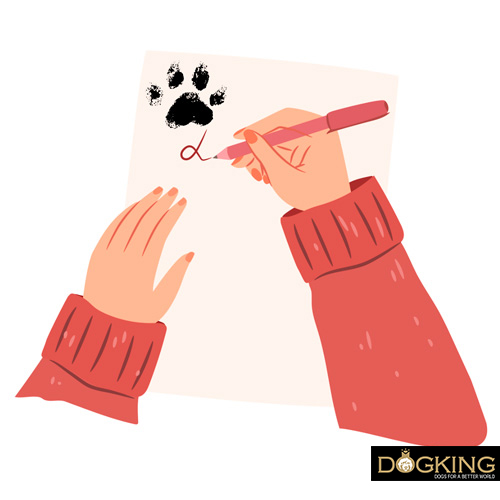
For some people, rituals help them to become aware of what has happened, say goodbye to their loved one and move on. If you think it might help, consider performing a symbolic act that means something to you and allows you to remember your furry friend and also say goodbye. But do it only when you feel ready, otherwise you may sink deeper. It doesn't have to be something grandiose: you can opt for something simple. Maybe go for a walk where you used to go and remember your good times together, bury a toy of theirs in their favourite spot in the park, or write a few words about how you feel about your dog. Painful emotions may come up, but these rituals can be very cathartic.
-
Remember the good times
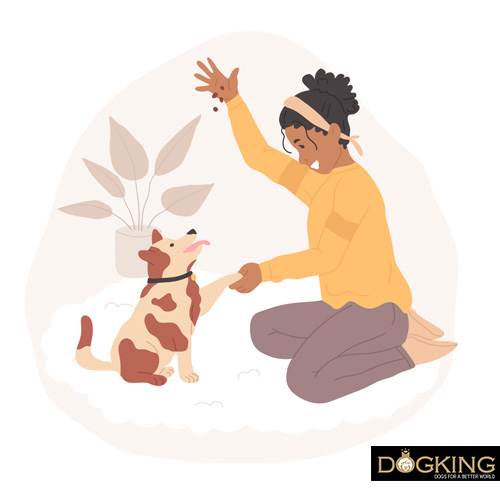
If your dog was very old, was ill or had gone unexpectedly due to an accident, it is very likely that you will keep replaying their last moments in your mind, which will make you feel very sad and heartbroken. However, you can try to change those thoughts little by little, replacing them with happy memories with your pet. We wish our dogs could live forever, but unfortunately, their death is inevitable, just as we will die one day. Focus on how lucky you were to have shared a few years of your life with your pet, all that they did for you and all the ways in which you helped them to have the happiest life possible. You were lucky to have known each other! And, believe us, in time the happy memories will outweigh the pain.
-
Normalise talking about your dog
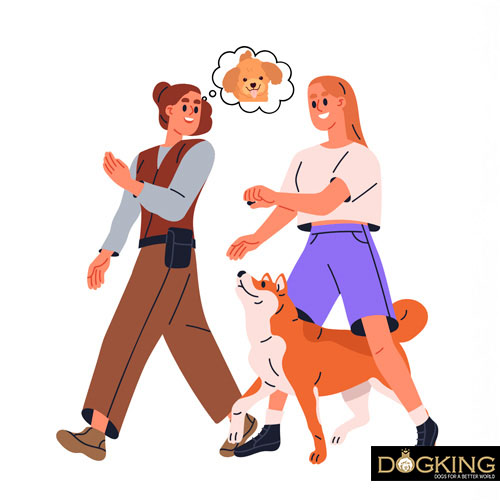
Every person is different and every bereavement is different. Perhaps, after the death of your dog you feel the need to talk about them, to look at pictures of them and keep them in your mind. Or you may try to avoid the subject because it is too painful for you. Either way, give yourself some time, but as soon as you are ready, try to normalise talking about your dog by sharing anecdotes with your family. You can also put together a photo album so that whenever you look at it, you will remember the wonderful times you had together. Focus on the beautiful and fun experiences to remember your dog for what they were a great companion who filled you with love and happiness.
-
Create new routines
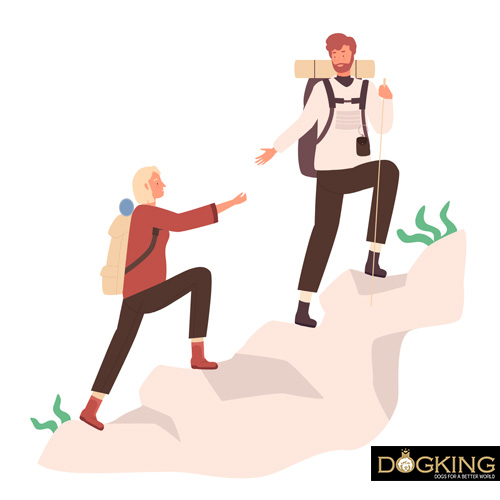
With all the time we spend with our dog, it's normal that, when they go we don't know how to fill that void. Walk times, the daily routines you used to share, the games at home... For the first few days, you may go out alone without knowing why, just to pass by the same old places or to say hello to the dogs your furry friend used to play with. Little by little, you can try to fill that time with other things that you enjoy: hobbies, time with your family, sport... Life goes on and your dog will want to see you happy and content.
-
Don't blame yourself
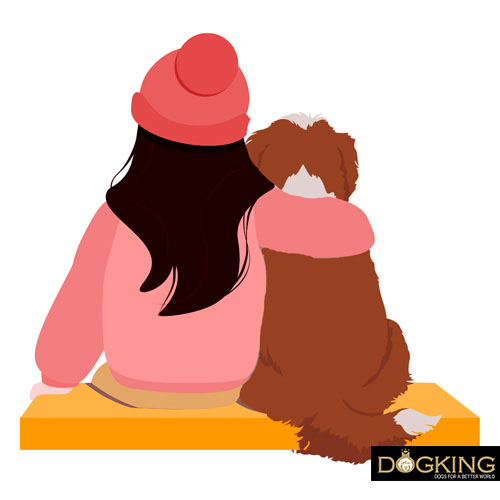
In the mourning stage of the negotiation it is very common to start hypothesising about what would have happened if we had done this or that, which can lead to a great feeling of guilt. Regardless of the circumstances of your dog's death, think that you did everything you could for them at the time, with the tools and knowledge you had at the time. You did nothing wrong intentionally, and although it is natural to feel guilt, try to manage this emotion and redirect it into more constructive thoughts. You did the best you could, and that's OK. Death is an inevitable part of life and, little by little, you will manage to move to the stage of acceptance.
-
Talk to children and adults
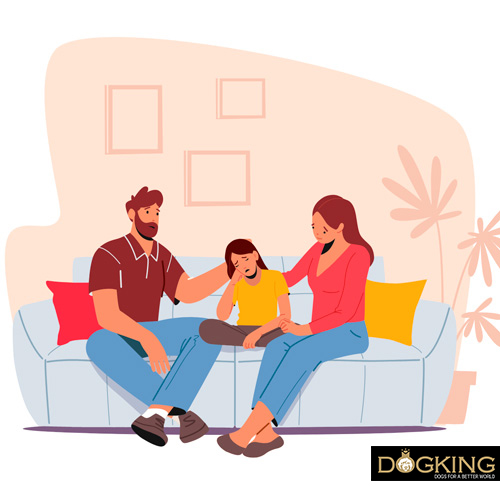
Children, especially young children, may suffer the most from the death of pets. Their young age means that they do not understand this sudden and irrevocable disappearance, and they may feel very sad and ask you a lot of questions. The best thing to do in these cases is to explain the situation in an age-appropriate way. Even if you have the best of intentions, do not try to deceive them, but try to accompany and support them through this difficult time.
On the other hand, people who live alone with a dog, especially if they are older, are also very vulnerable to this loss. Try to be attentive to them, listen to them, and wrap them up in your arms. Losing your best friend with whom you shared 24 hours a day is no small thing.
-
Seek professional help
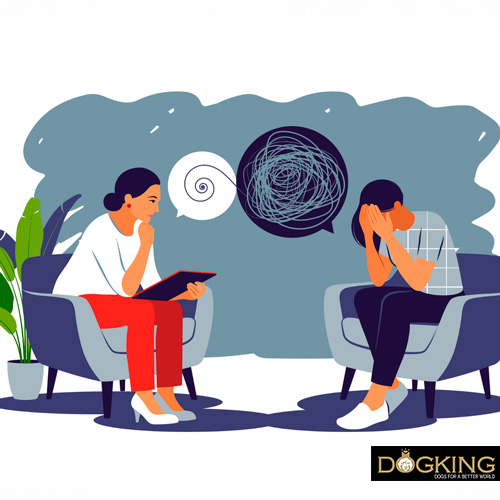
Do you think it's too much to resort to therapy to get over the death of your dog? Well, it's not. Don't feel bad if you need help to cope with this painful time. As we said before, the relationship between humans and dogs can be as close and meaningful as between two people, and no-one, not even you, should judge how you feel. If time goes by and you are still feeling sad, down and not getting over the grief, seek psychological help to start feeling better.
-
Don't replace your dog
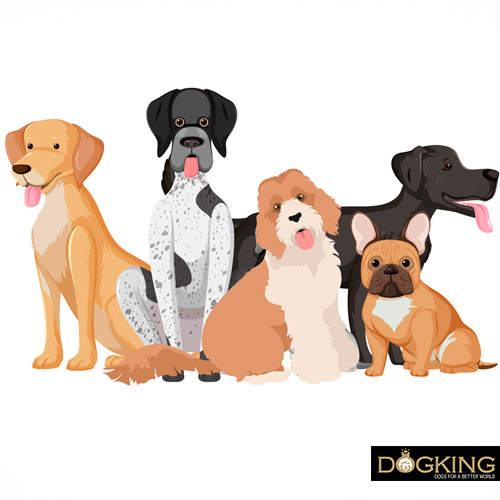
Although we are sure that it is impossible to replace the place your dog holds in your heart, you may feel the urge to quickly adopt another pet to ease the pain you are feeling. This is a very personal decision and only you know what you need right now, but you may want to consider waiting a little while. The new pet that comes into your life deserves a fresh start and the best version of you to care for them and look after them as they deserve. Once you have mourned the loss of your furry friend and feel truly ready to make the decision to adopt another puppy, do it without fear, opening your heart completely to this new member of your family. Because life with a furry companion is always so much better.